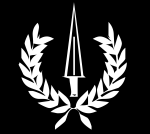Master Chief Petty Officer (IN)
| Imperial Navy Ranks |
|---|
| Commissioned Officers |
| O10 » Grand Admiral |
| O9 » Sector Admiral |
| O8c » Fleet Admiral (Admiral) |
| O8b » Fleet Admiral (Vice Admiral) |
| O8a » Fleet Admiral (Rear Admiral) |
| O7 » Commodore |
| O6 » Captain |
| O5 » Commander |
| O4 » Lieutenant Commander |
| O3 » Lieutenant |
| O2 » Sub-Lieutenant |
| O1 » Ensign |
| O0 » Cadet / Midshipman |
| Enlisted |
| E9 » Master Chief Petty Officer (MCPO) |
| E8 » Senior Chief Petty Officer (SCPO) |
| E7 » Chief Petty Officer (CPO) |
| E6 » Petty Officer First Class (PO1) |
| E5 » Petty Officer Second Class (PO2) |
| E4 » Petty Officer Third Class (PO3) |
| E3 » Able Spacehand (ASH) |
| E2 » Spacehand (SH) |
| E1 » Spacehand Apprentice (A) |
| E0 » Spacehand Recruit (R) |
The rank of Master Chief Petty Officer (E9) is the highest non-commissioned officer rank in the Imperial Navy. It is considered to be the equivalent of a Senior Warrant Officer.
Description (Specifications)[edit]
Master Chief Petty Officers typically assist the head of a major department aboard a larger vessel, and are considered to be the equivalent of a Senior Warrant Officer. They are the most senior of the petty officers aboard ship and are rated "Mate". e.g. Machinist's mate.
Master Chief Petty Officers may be addressed as Master Chief. The Master Chief Petty Officer at a Fleet Headquarters unit is the Command Master Chief. The Master Chief Petty Officer at Naval Headquarters on Capital is the Master Chief Petty Officer of the Navy.
- The equivalent rank in the Imperial Marines is Chief Master Sergeant (including the appointments of Sergeant Major and Chief Master Gunnery Sergeant).
In other services:
- The equivalent rank in the Imperial Army (Close Orbit and Airspace Control Command) is Chief Master Flight Sergeant (including the appointment of Flight Sergeant Major).
- The equivalent rank in the Imperial Army (Ground Force Command) is Chief Master Sergeant (including the appointment of Sergeant Major).
- The equivalent rank in the Imperial Army (Nautical Force Command) is Master Chief Petty Officer.
History & Background (Dossier)[edit]
The term Petty Officer dates back to the Age of Sail. When the first proper navies were formed by taking up maritime vessels and sailors from trade, those officers who were the senior professionals in terms of the maritime trade (initially the Master, Carpenter, Boatswain (or "Bosun"), and Purser, but later including the Gunner, Surgeon, and Chaplain as well) were elevated above their peers by a special Royal Warrant making their position "official" and became known as "Warrant Officers". These tradesmen were generally literate in order to maintain records, though still of common birth, and thus were of inferior dignity to those gentlemen who had received a Royal Commission to lead men into battle (namely a Captain and any subaltern officers, such as Lieutenants and Ensigns, etc.). These gentlemen were leaders of men and of war, but rarely had any experience with the details of handling a ship, however, and thus relied upon the Warrant Officers to take care of those details for them. Warrant Officers were thus technical specialists, and the lesser sailors they appointed to assist them with their duties, or "Petty Officers", became known as their "Mates" (e.g., the Master and Bosun, and the Master's Mate and Bosun's Mate, respectively, etc.).
In this context, an officer was termed "petty" in order to distinguish him from a gentleman who held both his office and command by Royal Commission, or one whose position required that his authority be recognized by elevation above his social peers by special Royal Warrant. The "Petty Officer" was that of a senior sailor, less than the Commissioned Officers and Warranted Officers but more senior than the other ordinary sailors and was appointed as a petty or lesser officer due to experience by his superiors.
References & Contributors (Sources)[edit]
| This page uses content from Wikipedia. The original article was at Petty_officer. The list of authors can be seen in the page history. The text of Wikipedia is available under the Commons Attribution-ShareAlike 3.0 Unported License. |
- Gareth Hanrahan. Core Rulebook (Mongoose Publishing, 2008), 24.
- Collated by: BackworldTraveller
